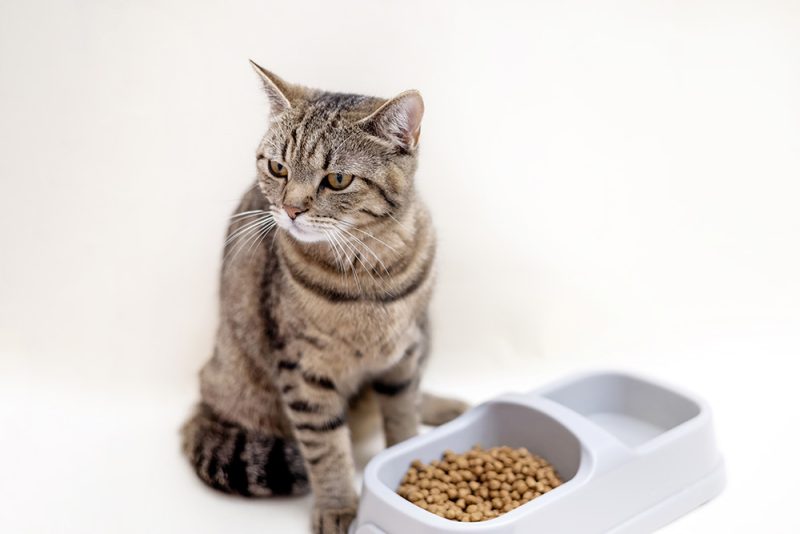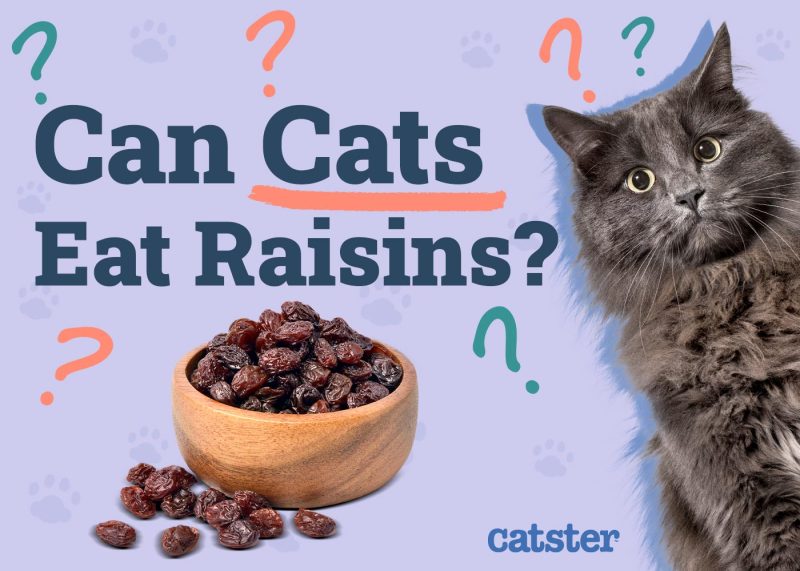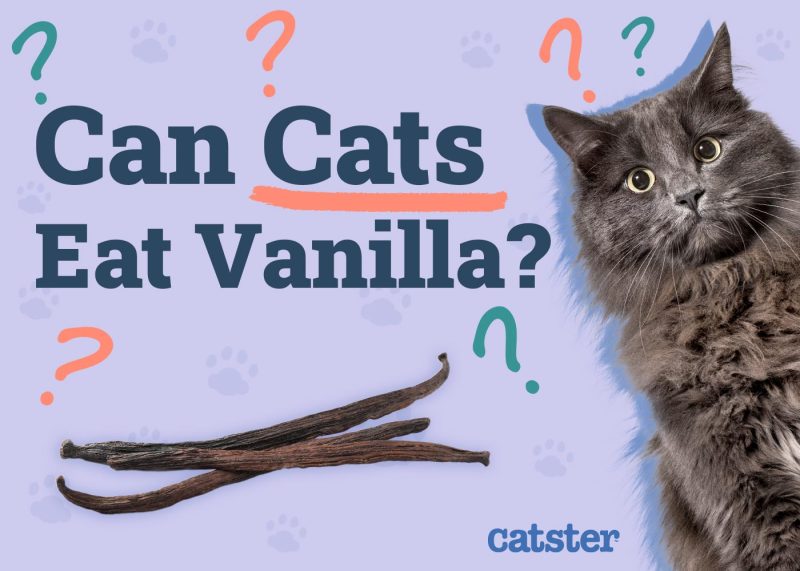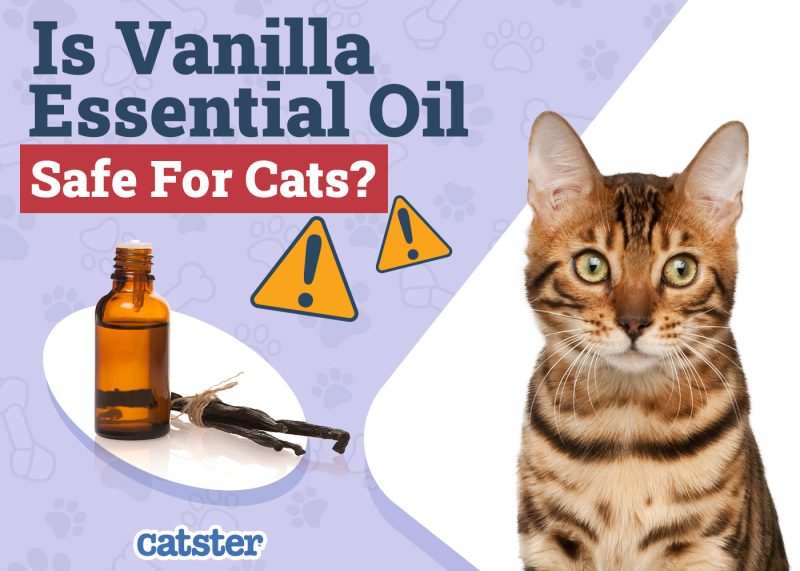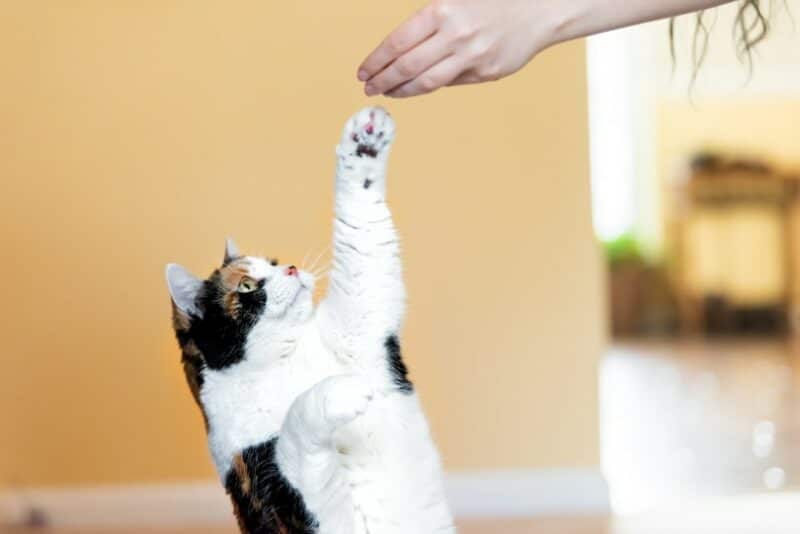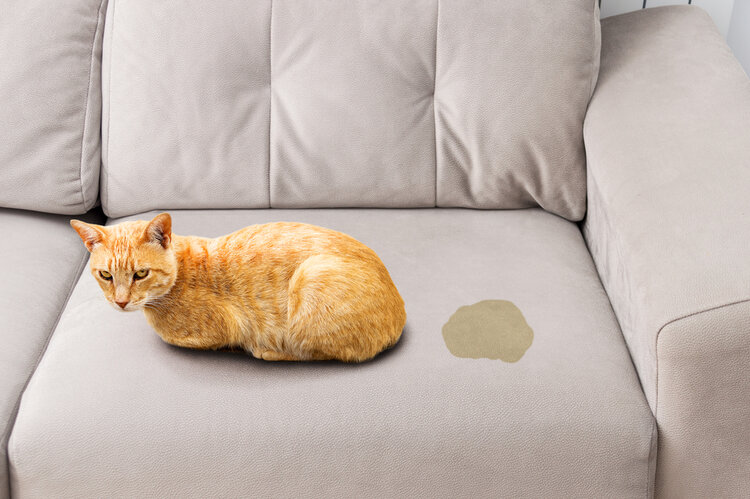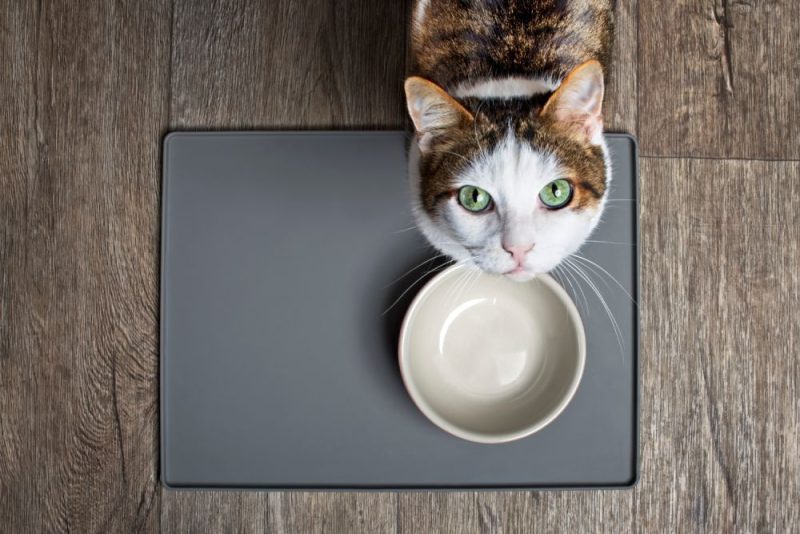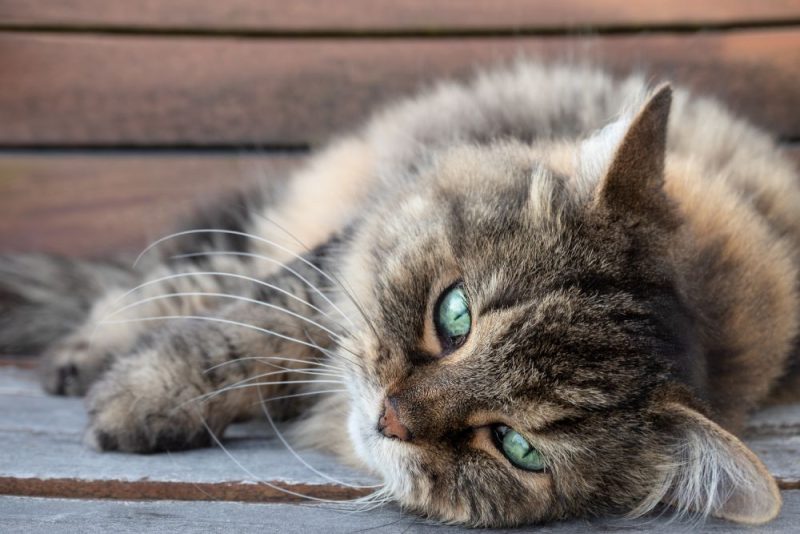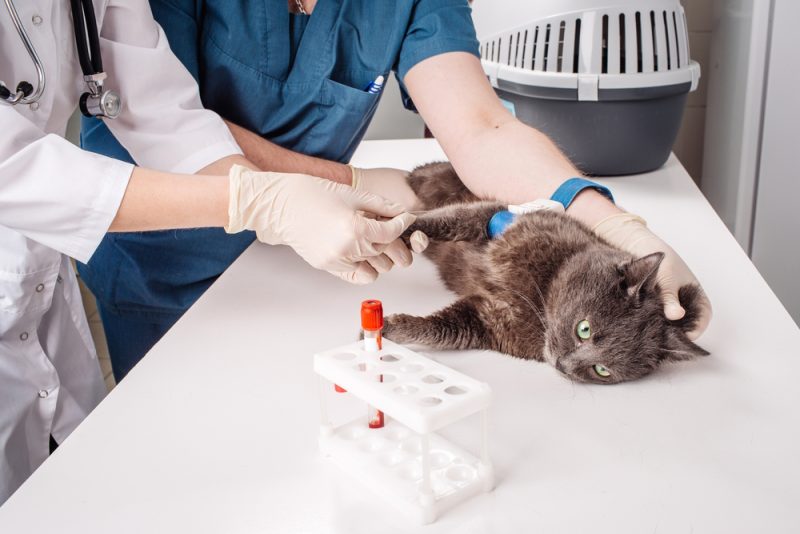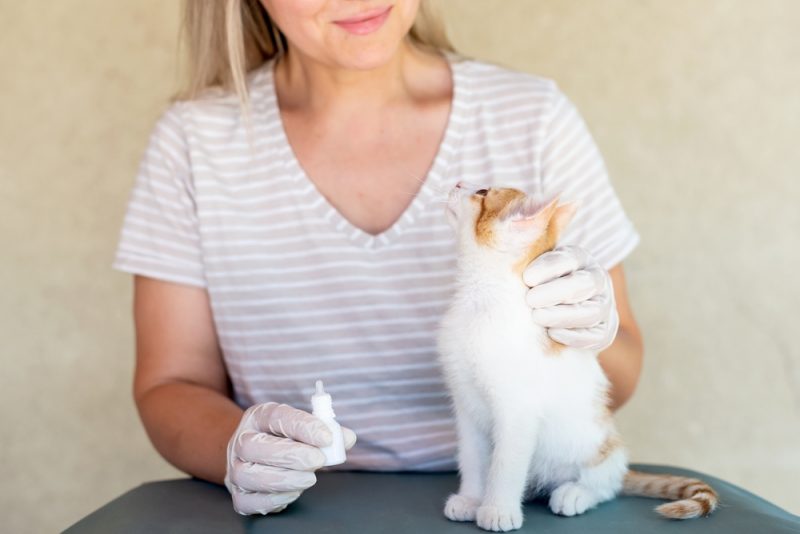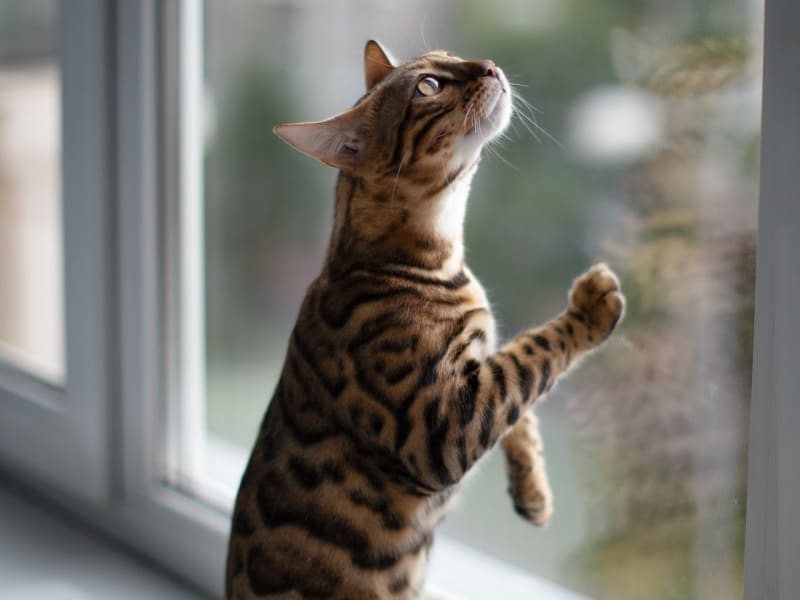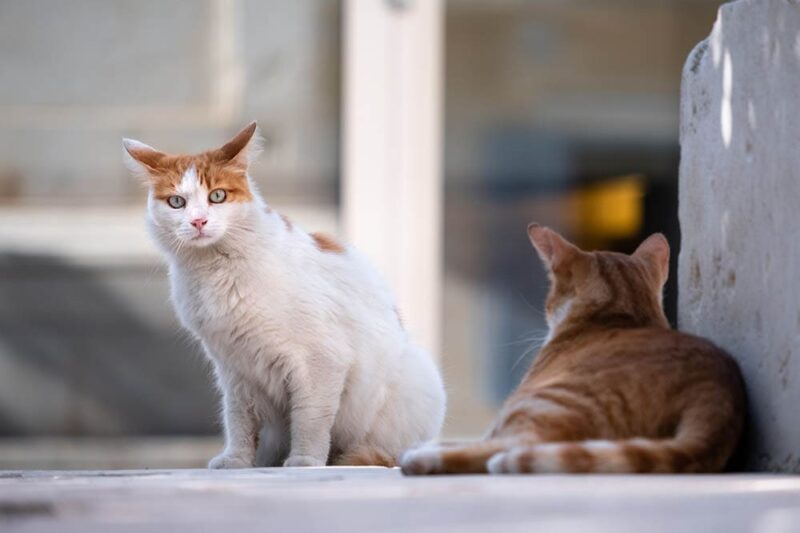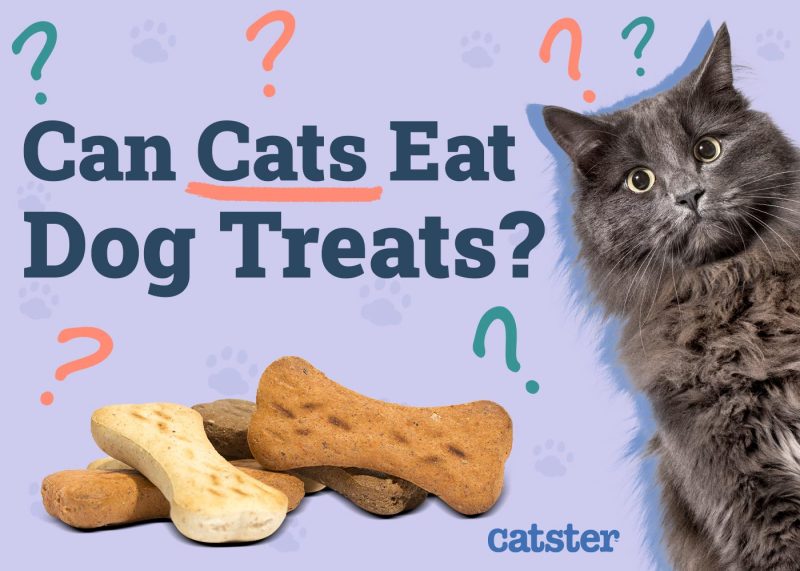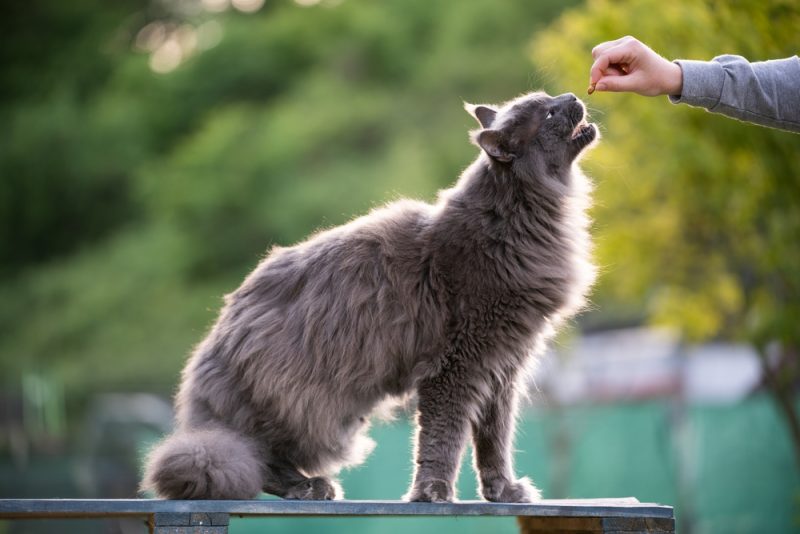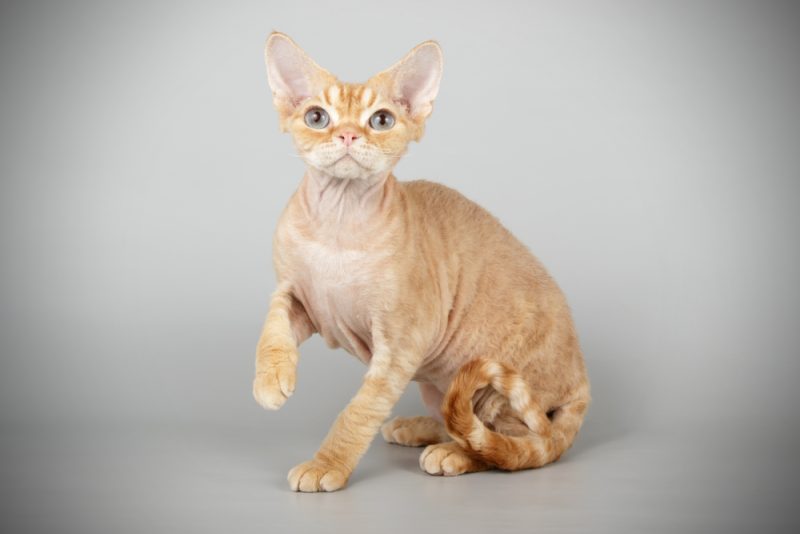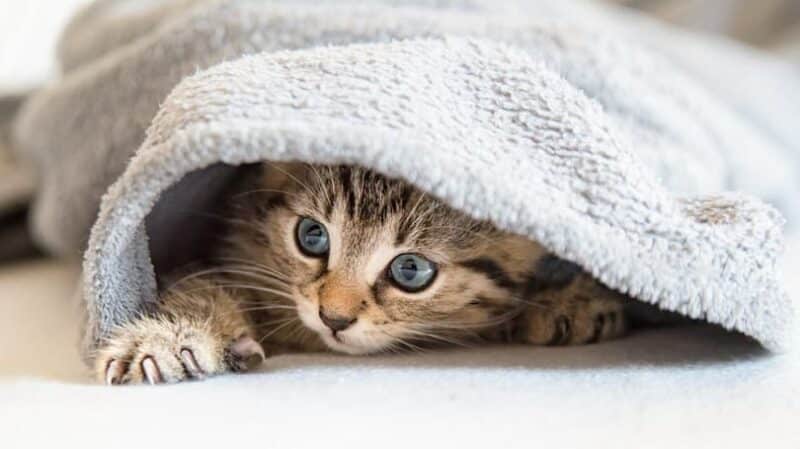In this article
When cats aren’t feeling well, they can exhibit a range of behaviors, including hiding away from the rest of the family and avoiding food. What if your cat is not eating but still behaving normally, such as purring? Does that mean your pet is ill, or is something else going on?
There are several reasons your cat could be not eating but still purring, ranging from having an issue with their food to a medical problem. What are those reasons? Here are 11 possible reasons your cat isn’t eating but is still purring and what to do when this happens!

The 7 Possible Reasons Why Your Cat Is Not Eating But Still Purring
1. Problem With Their Food
One of the more common reasons for a cat to start avoiding their food while still purring and acting normally is because there’s something about the food the cat doesn’t like. You might have recently changed food brands or flavors, but the new one simply doesn’t do it for your pet. Your cat might also have just decided to suddenly be picky about what they’re eating, or your cat’s food might have gone stale. Felines have sharp senses of smell so that they can pick up on small changes in their food, like staleness.
This is an easy problem to resolve, though. If food is stale, you can try keeping food in an airtight container or purchasing small bags of food instead of large bags. If you switched food recently, switch back to what your pet liked previously, or if you can’t go back for some reason, try adding a small bit of chicken broth (the low-sodium kind) or one of those cat gravy toppers to the food. The addition of broth or gravy may help if your pet has suddenly become picky, too.
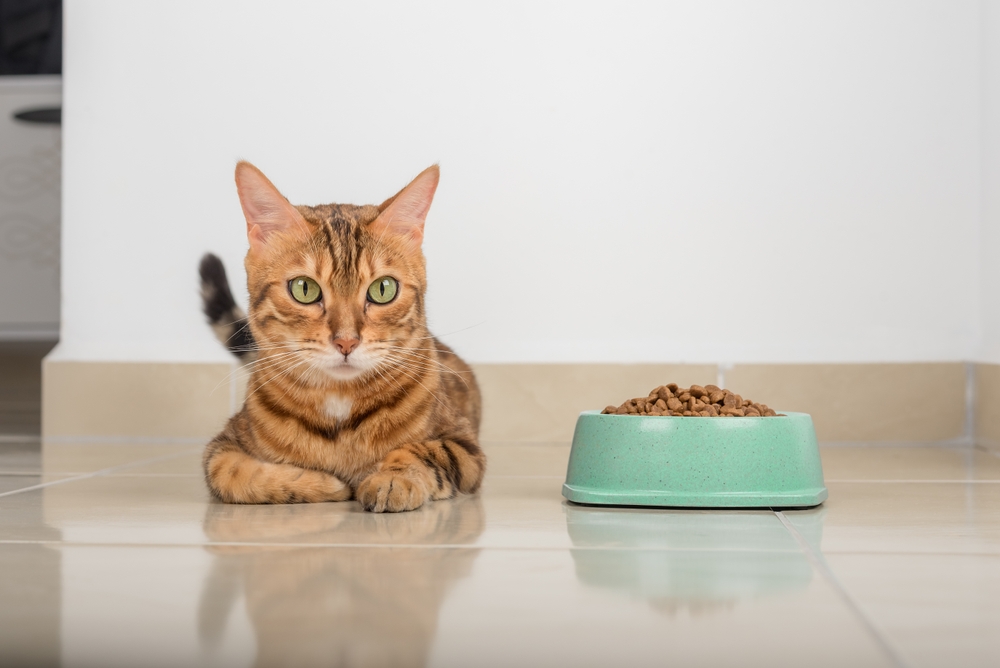
2. Food Aversion
Have you ever been in a situation you didn’t enjoy that ended up with you forever associating a song, scent, or food with it and wanting to never hear, smell, or eat that thing again? The same thing can happen with your cat. If your pet has recently had a stay at the hospital or boarding facility, they could end up with food aversion because they associate this food with a negative experience. The simplest solution is to try offering a variety of flavors and textures, if you suspect this may be the case.
3. Had a Recent Vaccination
You know how sometimes, when you get vaccinated for something, you end up feeling kind of lousy the next day or two? Well, that can happen to your cat, as well, and one of the more common vaccination side effects for felines is nausea, which could cause your pet not to eat but still purr like normal. The good news is that any nausea caused by vaccination should vanish in 48 hours or less.
However, if your cat still avoids food after that period, contact your pet’s vet, as it may be a sign of an adverse reaction to the vaccination (though this happens rarely).
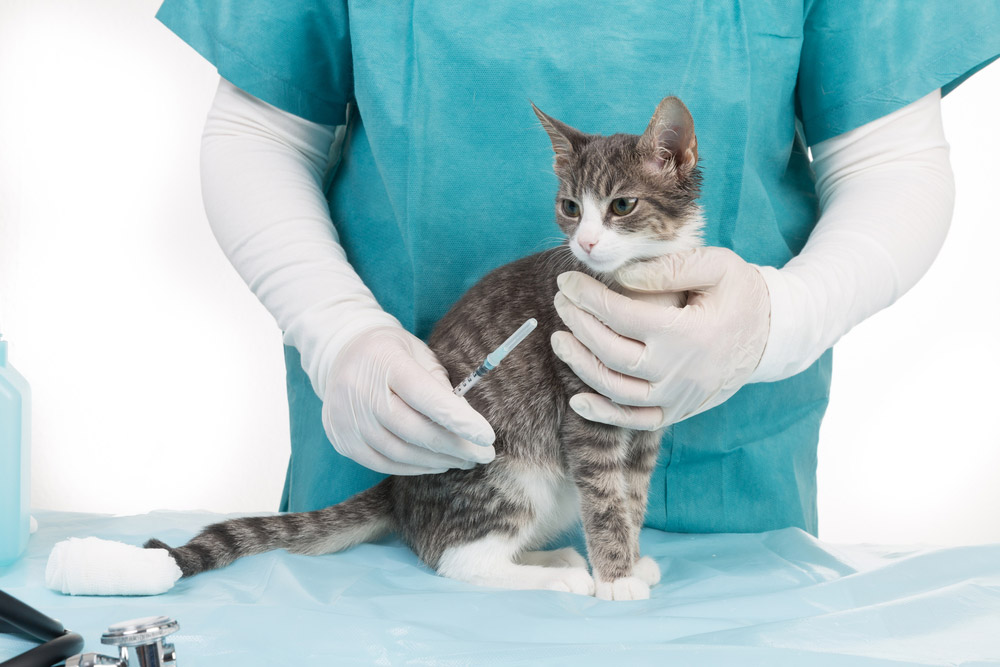
4. Is Too Hot
You probably eat lighter when temperatures are extremely high, so wouldn’t it make sense for your cat to do the same? When it’s too hot, chances are good your cat will eat much less than usual. In fact, one study found that felines eat as much as 15% fewer calories during the hotter months. Most likely, cats eat less when it’s hot because they’re expending less energy, so they require fewer calories.
There’s not much you can do to convince your cat to eat when it’s hot out, especially if their body doesn’t really need the extra calories. But you can ensure your pet stays hydrated by keeping fresh, clean water available at all times.
5. Minor Gastrointestinal Issue
If your cat is suffering from a minor gastrointestinal issue, they may stop eating but continue to act normally. Of course, if the problem is a major one, your cat will probably not be purring and instead will exhibit symptoms other than simply skipping a meal or two. But if your cat is still purring and not having issues like vomiting, diarrhea, or weight loss, it’s probably just mild stomach upset or irritation.
As long as the problem is mild, it should clear up on its own in a day or two, but if symptoms get worse, you should visit your vet.
If you need to speak with a vet but can't get to one, head over to PangoVet. It's an online service where you can talk to a vet online and get the advice you need for your pet — all at an affordable price!

6. Mild Dental Issues
The same holds true for mild dental issues. You probably don’t want to eat much if you have a tooth that’s aching, and your cat doesn’t either! Mild dental problems such as a toothache or loose tooth can cause your cat to avoid eating (especially if they’re being given dry food).
If the problem concerns your cat’s teeth, a visit to the vet to find and remedy the issue is advisable. You may also want to speak with your vet about regular teeth cleanings for your feline to avoid further dental trouble.
7. Cold or Allergies
Felines can suffer from colds and allergies just like us, and when they do, there’s a chance they could begin to refuse to eat while continuing to purr and act normally. In this case, food avoidance is likely due to having a stuffy nose; if the cat is congested, they can’t smell food, so they probably won’t want to eat it. When this happens, you can try warming up a bit of wet cat food for them (doing this makes the food smellier). You might also attempt giving them some fish that’s extra smelly.
If your cat hasn’t recovered from their cold or allergies after a few days, or if they become lethargic, develop runny eyes, or have a fever, a vet visit is in order.
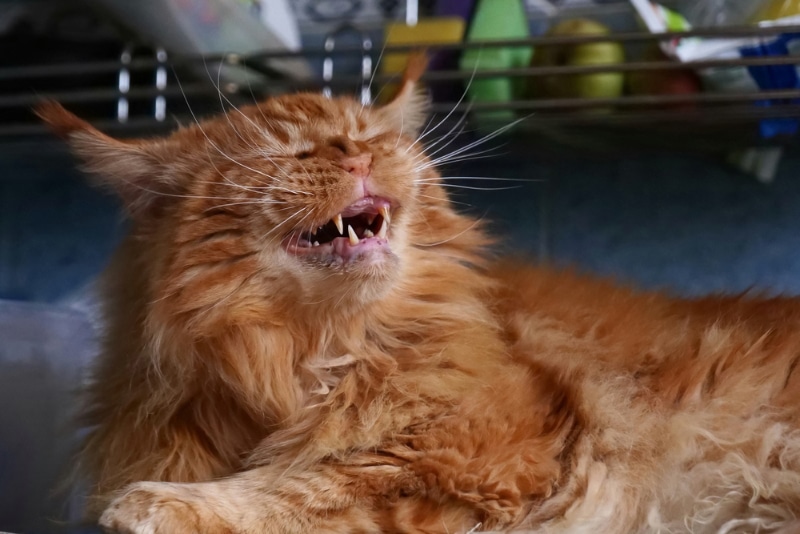

Side Effects of Medication
Like with vaccines, certain medications can cause side effects in felines. One common side effect is nausea, which could lead to the cat not eating. Just a few kinds of medicine that can cause stomach upset in cats include antibiotics, medicine for hypertension, pain medicine, and anti-parasitics.
If you believe medication is the cause of your cat’s food avoidance, you have a couple of options. If they’re only taking the medicine short-term, it might be best to simply wait it out while trying to encourage your pet to eat (and ensure they’re staying hydrated). But if the medicine needs to be taken long-term, speak with the kitty’s vet to determine if there are other medications your pet could take.
1. Experiencing Stress
It isn’t uncommon for cats to experience stress and anxiety. Felines are big fans of routine, so the most minute changes can create a lot of anxiety for them. And if the cat is stressed, they could stop eating or eat less, even while still purring.
What are some causes of stress and anxiety in cats? Losing a family member (human or animal), new furniture in the house, a new home, new animals in the house, new humans in the house, and so much more. The best way to help your cat here is to try to help them deal with the stress they’re experiencing.
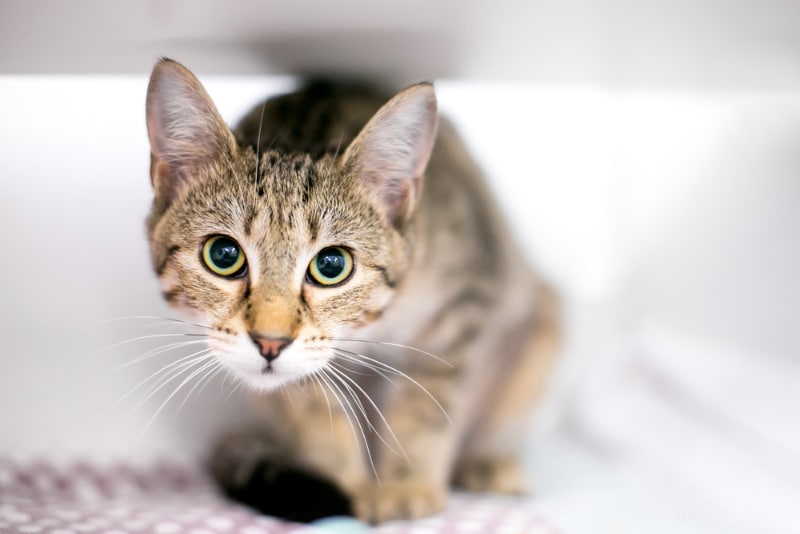
2. Mild Pain
A cat experiencing pain could definitely stop eating, and if the pain was merely mild, it wouldn’t be unheard of for them to continue purring and acting normally. If your cat is experiencing pain, you’ll probably see other signs of it, though these signs will vary by ailment. A cat who’s limping could have something stuck in the paw, while a feline experiencing a stomach ache might vomit at some point. If you can’t figure out where your pet is experiencing pain, let their vet look at them.
3. Early Stage of Undiagnosed Illness
This is probably the least common reason a cat would not be eating but would still be purring, but there’s always a chance your pet is in the beginning stages of an illness or disease. Some conditions, even in the early stages, can cause a kitty to have less appetite. These conditions include viral and bacterial infections, diabetes, and irritable bowel syndrome (IBS).
If your cat isn’t feeling well, they’ll likely also be separating themselves from the rest of the family, sleeping more, or even becoming grumpy if disturbed. If other signs appear, it’s time for a visit to the vet.
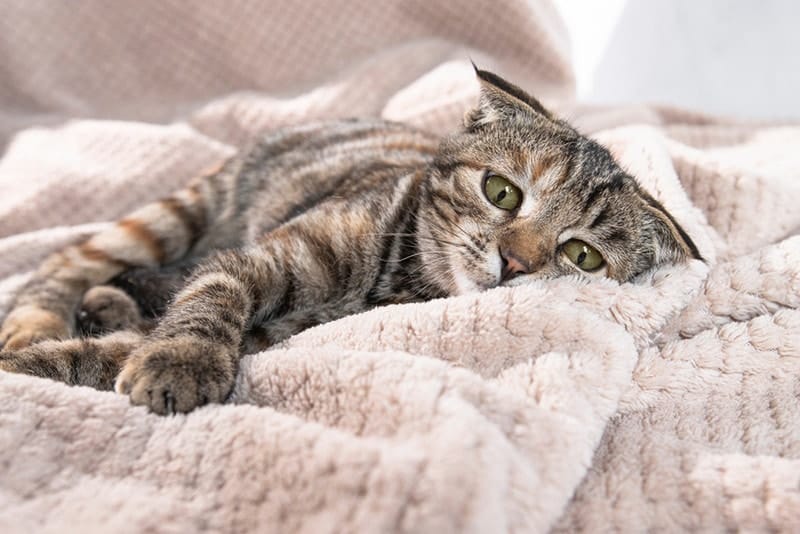

Conclusion
If you have a kitty who’s purring but not eating, there are numerous reasons this could be occurring. Remember, purring can also be a sign of illness, so just because your cat is still purring isn’t always a good thing. Sometimes purring indicates an ill cat, and in many of the above examples, purring may not be so much a happy purr, but one of a cat that equally, does not feel well. So, if you suspect any of the above, carefully monitor your cat, and if they skip more than a meal or two, it is time to speak with your vet!
See Also:
Featured Image Credit: Alexandra Morosanu, Shutterstock
